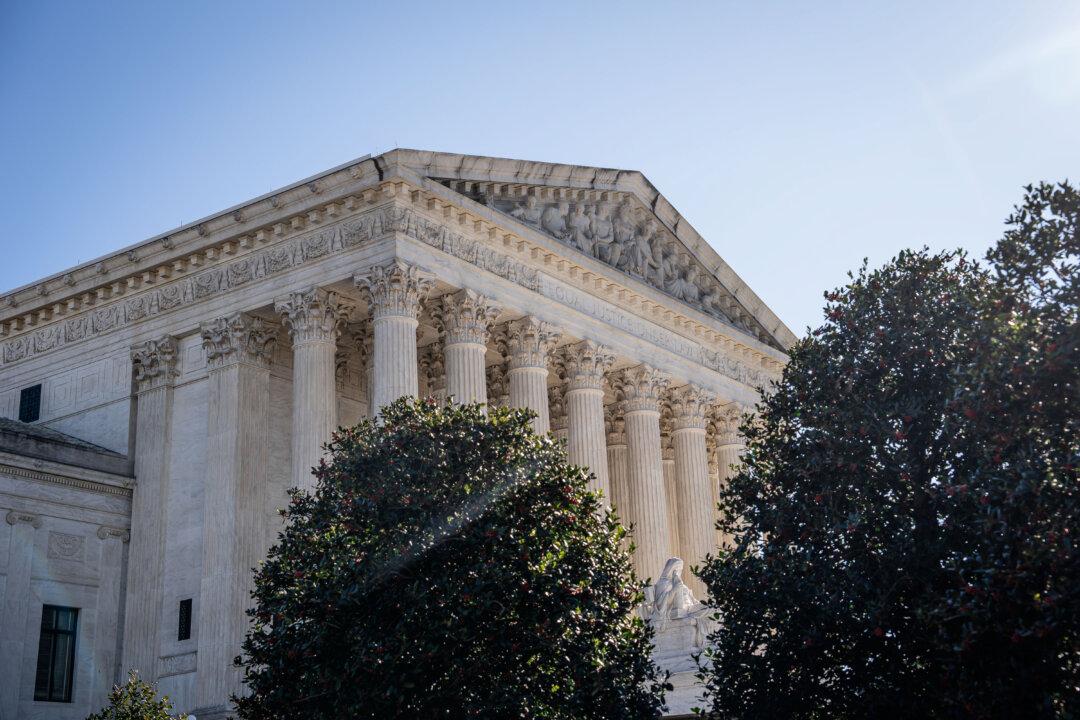U.S. Supreme Court justices on Jan. 13 rejected a request to review a lower court order on President Joe Biden’s order establishing a $15 minimum wage for federal contractors.
The justices turned down the petition from the Colorado River Outfitters Association, a rafting trade group, Duke Bradford, and Bradford’s company, Arkansas Valley Adventures.





